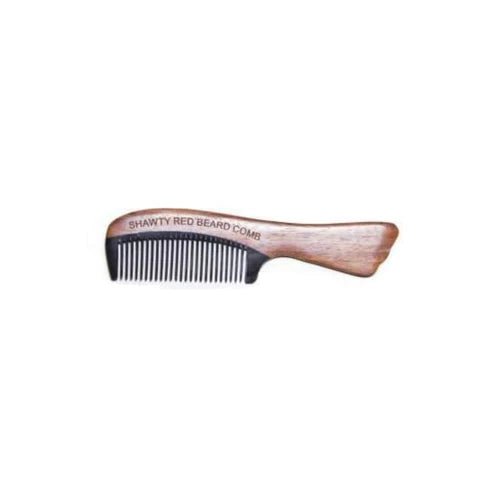When it comes to choosing the right comb for your hair, the options can be overwhelming. Among the most common materials are wood and plastic, each with its own set of advantages and drawbacks. Wooden comb and plastic comb are both popular choices, but which one is better for your hair?
When it comes to hair care, the comb we use can make a significant difference.
The choice between a wooden comb and a plastic comb is more significant than you might think.
Let’s explore how wooden and plastic combs pros and cons of each to help you make an informed decision.
Wooden Comb
Wooden combs are not as widely available as plastic combs, and they may be more expensive due to the quality of materials and craftsmanship involved.
1. Gentle on Hair and Scalp
Wooden combs are known for their gentle touch. Wooden comb is help to reduce frizz by gently detangling hair without causing excessive breakage. The smooth, rounded teeth of a wooden comb glide through your hair without causing friction or static, which can lead to breakage and split ends. This makes wooden comb particularly beneficial for those with fragile, damaged, or curly hair.
2. Reduces Static Electricity
One of the main issues with plastic combs is that they generate static electricity, especially in dry or cold environments. This static can cause your hair to frizz and become unmanageable. In contrast, wooden comb don’t conduct electricity, which means they won’t cause static, leaving your hair smooth and manageable.
3. Naturally Distributes Oils
Wooden comb have the unique ability to absorb and redistribute your scalp’s natural oils, coating your hair strands evenly. This natural conditioning process helps to keep your hair shiny, moisturized, and less prone to dryness and split ends.
4. Eco-Friendly and Sustainable
If you’re environmentally conscious, wooden combs are the clear winner. Made from natural, biodegradable materials, wooden comb is a sustainable choice that reduces your carbon footprint. Plastic combs, on the other hand, contribute to pollution and environmental degradation.
5. Durability
Wooden combs are often more durable than plastic ones. They are less likely to break or crack under pressure, making them a long-lasting addition to your grooming kit.

Plastic Combs
Plastic combs are widely available and affordable, making them a popular choice. However, they may not be as beneficial for your hair as wooden comb:
1. Static Electricity
As mentioned earlier, plastic combs are notorious for generating static electricity, which can leave your hair frizzy and unmanageable. This is especially problematic for those with fine, thin, or dry hair.
2. Fragility
While plastic combs are affordable, they are also prone to breaking, especially if made from low-quality plastic. This means you may need to replace them frequently, which adds to long-term costs.
3. Environmental Impact
Plastic combs contribute to environmental pollution. Since plastic is non-biodegradable, discarded plastic combs can end up in landfills or oceans, causing harm to wildlife and ecosystems.
4. Impact on Hair and Scalp:
- Increased Frizz: Plastic combs can create static electricity, leading to increased frizz and flyaway.
- Hair Breakage: The hard, rigid teeth of plastic combs can cause more damage to hair, especially when used on wet or tangled hair.

How to Choose best Comb for your hair?
The decision between a wooden comb and a plastic comb ultimately depends on your hair type, personal preferences, and environmental values.
-
If you value sustainability and want a comb that is gentle on your hair and scalp, the wooden comb is the superior choice. It may require a bit more care, but the benefits to your hair’s health and the environment are well worth it.
-
If you’re looking for an affordable option with a wide variety of designs, a plastic comb might be more convenient. However, be prepared to deal with potential issues like static electricity and frequent replacements.
Additional Tips for Healthy Hair
- Detangle Gently: Always detangle your hair gently, starting from the ends and working your way up to the roots.
- Avoid Brushing Wet Hair: Wet hair is more fragile and prone to breakage. Wait until it is partially dry before combing.
- Use a Conditioner: Regular conditioning helps to soften and protect your hair, making it easier to detangle.

